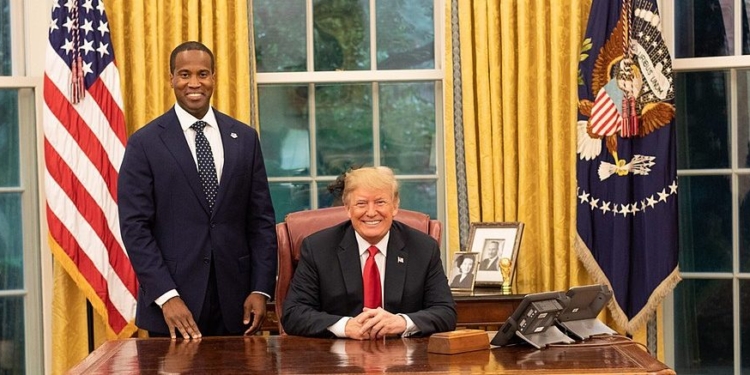President Trump wants Congress to cut $9.3 billion in foreign affairs and other nonsense spending. It is only half a percent of this year’s new federal borrowing, yet it may be the linchpin both for Trump’s legacy and the success of a Congress with a slim Republican majority.
Trump asked Congress to cancel funds under different circumstances in 2018, and it failed by one vote in the Senate. The conditions this year are more promising.
Still, fewer than half of today’s House Republicans were in Congress then. This initial request for cuts will get newer members familiar with rescissions requests from the president, which opens an easier, fast-track path to claw back annually appropriated spending.
If Republicans stay united, they can cut spending with only their votes.
Meanwhile, House committees are advancing legislation for “one, big, beautiful” budget reconciliation bill. This fast-track, simple-majority process covers tax policies and direct spending, often misleadingly called “mandatory” spending.
The reconciliation bill will unleash energy abundance, provide resources to secure the border and enforce immigration laws, reduce wasteful spending, and protect prosperity by extending and improving on the 2017 Trump tax cuts.
House Republicans’ narrow majority requires near-unanimity—four of 220 Republicans joining the 213 Democrats to oppose a bill can prevent passage—yet different GOP factions have different demands. Spending and deficit hawks have been especially vocal.
The budget resolution setting up the reconciliation bill allows a substantial increase in federal borrowing, although House Republican Conference Vice Chair Rep. Blake Moore told Semafor that they’re “trying to make this bill a deficit-neutral bill.”
Rescissions can fill the gap.
Trump can ask Congress to cancel loads of Biden-era spending and other activities that Republicans oppose. Pairing reconciliation with a major rescissions bill would give every Republican in Congress enough wins to support a combined package that grows the economy, improves security, reduces wasteful spending, and streamlines the federal government.
Fully embracing rescissions requires all members to believe that those requests bring real spending cuts and that major savings are possible. That is the vote on the initial rescissions package is crucial.
Going through a live-fire exercise, even a relatively small version, is a proof of concept with undeniable possibilities.
Federal agencies had $1.5 trillion of non-committed spending authority that Congress could claw back as of April 18. Much is for core federal functions like defense, but some is set aside for wasteful, actively harmful, or constitutionally dubious activities.
That’s the kind of spending Congress should cancel.
Republicans have a golden opportunity to remake the federal government into a limited and responsible steward of the American people’s interests. This would come in stark contrast to the Biden-era policies of massive, top-down, all-powerful government that voters clearly rejected last year. Failure would mean less opportunity and freedom for the people, Republicans in the political wilderness, and a return to fringe progressive activists controlling the coercive power of the state.
That’s why Congress must pass Trump’s rescissions request soon. It is the key to further spending cuts that, in turn, will grease the skids for a major budget overhaul to grow the economy, unleash opportunity, and unlock vast amounts of human potential.
So much winning on spending and taxes will spur success elsewhere. It will energize those seeking to fix the deeply dysfunctional federal budget system. It will help the appropriations process get back on track. It will let the Trump administration focus on bringing agency activities and regulations in line with the best meaning of the laws, as the Supreme Court now expects.
Republicans’ success depends on enacting the big tax, energy, and security changes in the budget reconciliation bill. Members of Congress must embrace wholeheartedly President Trump’s requests to cancel wasteful spending.
Kurt Couchman is senior fellow in fiscal policy at Americans for Prosperity.
The views and opinions expressed in this commentary are those of the author and do not reflect the official position of the Daily Caller News Foundation.
All content created by the Daily Caller News Foundation, an independent and nonpartisan newswire service, is available without charge to any legitimate news publisher that can provide a large audience. All republished articles must include our logo, our reporter’s byline and their DCNF affiliation. For any questions about our guidelines or partnering with us, please contact [email protected].



























 Continue with Google
Continue with Google